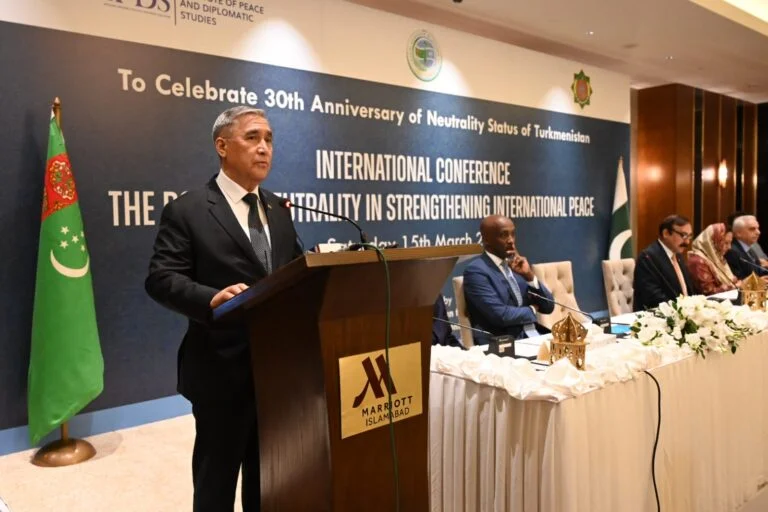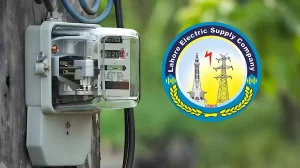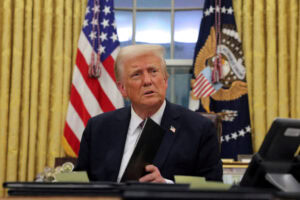Islamabad, Mar 16 2025: Turkmenistan’s long-standing policy of permanent neutrality has played a vital role in fostering regional stability, economic collaboration, and global peace efforts over the past three decades.
These views were shared by experts at the International Conference on “The Role of Neutrality in Strengthening International Peace,” hosted by the Embassy of Turkmenistan in partnership with the Institute of Peace and Diplomatic Studies (IPDS).
The event commemorated 30 years of Turkmenistan’s neutral foreign policy, which led to the UN General Assembly’s declaration of 2025 as the “International Year of Peace and Trust.”
READ MORE:
PM Shehbaz Aims for $2B Trade Boost with UzbekistanSpeakers emphasized that neutrality is not a passive stance but an active diplomatic strategy that promotes trust, stability, and balanced foreign relations. Turkmenistan’s UN-recognized neutrality has enabled it to serve as a key player in conflict resolution, regional integration, and international mediation.
By adopting this approach, Turkmenistan has strengthened trade opportunities, security partnerships, and diplomatic leverage, while avoiding entanglement in global power rivalries.
Federal Minister for Parliamentary Affairs Tariq Fazal Choudhary praised Turkmenistan’s diplomatic model, reaffirming Pakistan’s commitment to deepening economic, cultural, and diplomatic ties.
He highlighted mutual interests in energy security, trade expansion, and regional connectivity, particularly through the TAPI gas pipeline.
Turkmenistan’s Ambassador to Pakistan, Atadjan Movlamov, underscored his country’s dedication to global Peace and Stability, economic growth. He highlighted energy, trade, and cultural diplomacy initiatives as key drivers of Pakistan-Turkmenistan bilateral cooperation.
Dr. Farhat Asif, President of IPDS, opened the conference by emphasizing that neutrality serves as an active diplomatic mechanism rather than a passive stance.
She noted that Turkmenistan’s neutrality has allowed the country to play a constructive role in regional economic projects and global peace initiatives.
Mohamed Yahya, UN Resident Coordinator in Pakistan, linked Turkmenistan’s diplomatic approach to the UN’s peacekeeping mission, noting that its neutrality contributes to regional stability and conflict prevention.
Academic perspectives were provided by Dr. Khurram Iqbal (National Defense University) and Dr. Taraq Waheed (SZABIST), who highlighted neutrality’s role in conflict resolution, economic diplomacy, and cultural engagement.
They called for greater academic and research collaboration between Pakistan and Turkmenistan to further strengthen bilateral ties.
The event concluded with an exchange of souvenirs and an iftar dinner, attended by diplomats, scholars, and civil society representatives, reaffirming the importance of continued trade, energy, and cultural partnerships between the two nations.









